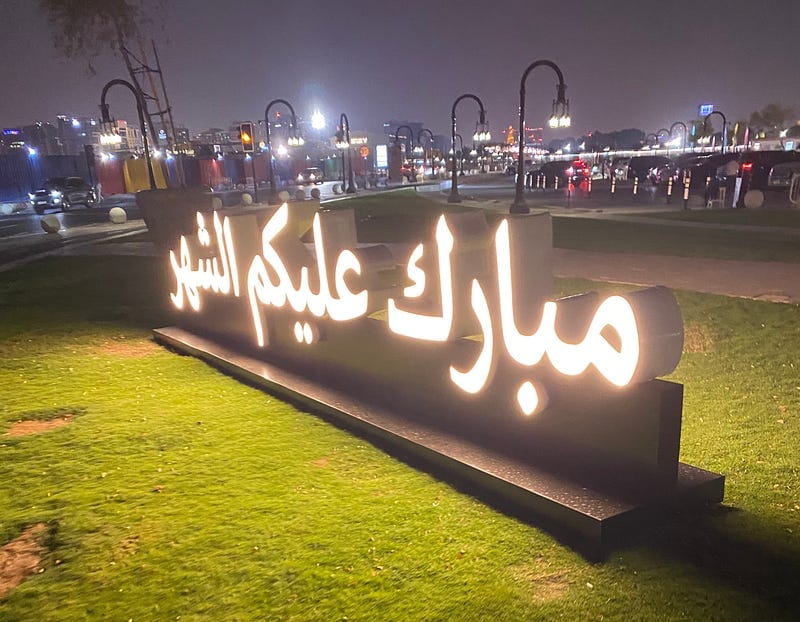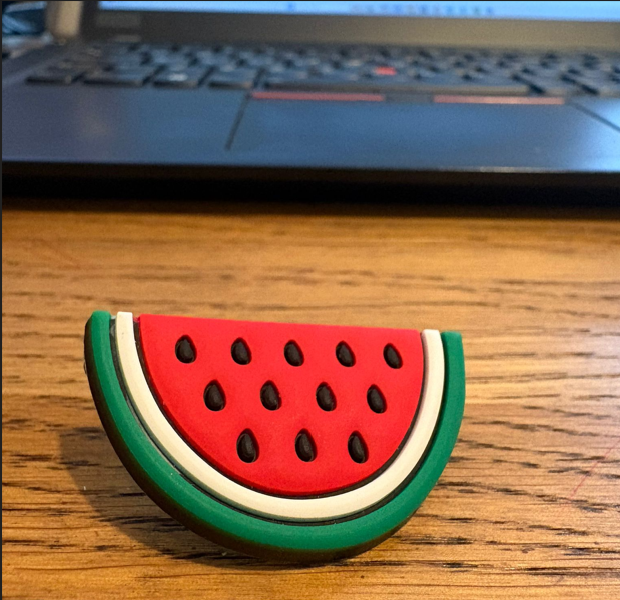Why I am learning Arabic

Outside of my day job as a Security Engineer, I have been learning Arabic with Arabica Institute for a few years. Classes are once a week and there is a clear emphasis on learning to speak and understand the language rather than focusing on grammar rules. This makes sense to me because as a child, we didn’t learn our language by learning grammar. I didn’t learn English or Bangla by learning grammar. I learnt Bangla just by speaking with my parents in the house and English at school with my friends and teachers. Grammar came much later. I also understand Hindi just from many evenings as a kid sitting with my Mum while she watched her favourite Indian Soaps/Bollywood films. I find this strange to this day because I literally picked it up by the context of what was happening in the scenes.
With Arabic, I think I have made decent progress so far. I am finding it quite difficult to fit in extra study time with responsibilities to a young family, Work, taking care of my health and all the other things that take over my time. For me, learning is a privilege so I try my best. This year I want to ramp up my practice, push myself with learning methods and become more confident in speaking. I started a YouTube channel where I intend to upload some videos in Arabic using whatever limited vocabulary I have. They may be rubbish and full of mistakes but it’s more for me to push myself and get creative with learning.
Here are three reasons why I am learning Arabic:
1. To understand the Qur’an/ spiritual development
Like many Muslims, I want to learn Arabic to understand the Qur’an. It may surprise some people to know that most Muslims do not actually understand Arabic. Most Muslims are not Arab and Arabic is not their mother tongue. Yes, we can probably read the script, and memorize some prayers and verses but we don’t actually learn Arabic as a language and so we rely on translations. We believe the Qur’an is a guide for all of mankind so it is imperative I understand this guide. There are great translations which are sufficient for a general understanding. But I want a more deeper connection with the Qur’an in every sense, linguistically, mentally and spiritually. What do I mean? Let me explain.
The Qur’an was divinely revealed to the Prophet Mohammed (pbuh) in his language, Arabic. Sometimes it was delivered orally by the Angel Gabriel and sometimes the Prophet (pbuh) was divinely inspired with the verses. Yes, there are translations of the Qur’an but, as my teachers have explained to me, in order to really understand the message, the linguistic brilliance of the Qur’an, the culture and context of verses, you have to learn the language. You cannot do that by passively translating the text word by word. You will understand the translation perhaps, but you will miss out on the experience of taking in the speech of God. When the people of Mohammed (pbuh) heard the Qur’an for the first time they were moved by its message but also its linguistic style. That is to do with understanding the language. Passive translations don’t touch your heart in the same way. Reading or listening to the words of God should be a spiritual and impactful experience.
Many Muslims would agree that hearing the Qur’an being recited with the proper pronunciation and a beautiful Qur’anic melody evokes many emotions within the listener, from fear and remorse to joy and awe. Learning the language, or at least some of it, will go a long way to me benefitting from its message, increasing sincerity in worship and ultimately making me a better person.
2. Self development
Learning a language is a skill. It takes time and dedication to build this skill. My day job is in Cyber Security and I have done a lot of technical studying and training. Studying Arabic has stimulated my mind in a different way to the training I am used to. It makes me think about problems in a different way to my work problems. It puts me in situations which I am not used to. Let me give you an example. From the very first lesson, we have always been tasked with applying what we have learnt by doing a role play conversation in Arabic with a fellow student, in front of the whole class. This is a petrifying situation for me as I am not always comfortable with public speaking in English let alone a foreign language. However, it’s these uncomfortable situations that help you to improve. You have to think on the spot without fear of making mistakes and let go of any inhibitions. This is a transferable skill that I am practising very often now because of my Arabic studies.
Learning Arabic has helped me with
- Public speaking
- Memory retention
- Time management
- Creativity
- Listening
- Networking
- Writing
- Critical thinking
I also have a goal to live and work in the Middle east at some point in the future. Do I need Arabic to do so? No. But it can only be a good thing.
3. Arabic is an interesting subject.
I genuinely find the Arabic language fascinating, especially the Arabic of the Qur’an. Growing up in the west, the media would have you believe that Arabic or Arabic speakers are backwards or that it’s a harsh language with strange sounds. I remember one Comedy sketch when I was in school was all about the name Ahmed. The comic kept saying “Akhhhmed, Akhhhmed” with a sound coming from the back of his throat , almost like a cough. Not only was the beautiful name Ahmed butchered but the letter ‘kha’ was misused.
I love the way Arabic script reads, how it looks and the way it sounds out loud. Arabic makes use of so many of the sounds a human voice can make. There are letters that make sounds that cannot quite be reproduced in English. When you hear Qur’anic recitation or Arabic poetry, the sounds of the human voice alone are beautiful and eloquent. I just find the language itself is one of eloquence, linguistic beauty and of course , as a Muslim, the language of the Qur’an has a spiritual impact on me.



